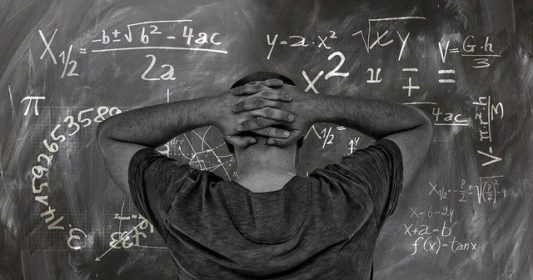Last Updated on October 12, 2025 by Michelle Ball
Lately I have been hearing about high school students being suspended, transferred and punished harshly for academic dishonesty issues. Is it too harsh to suspend a high schooler for cheating?

What is Academic Dishonesty?
Academic dishonesty is a term that applies to cheating or plagiarizing another person’s work. It can strike a student if they use another person’s work, but don’t cite it correctly, if they share work they are not supposed to with another student, or if they flat-out cheat.
Students can be struck with an academic dishonesty allegation if a teacher runs a paper through turnitin.com or another work checker, and it comes up with a high percentage of similar material. This can lead to allegations of copying, cheating, and to academic dishonesty punishments.
Typically a Post-Secondary Issue
I typically see academic dishonesty allegations in college settings, where students are expected to know better than to take content from online materials for use as their own or to share work.
This is an appropriate issue in a college setting, and can lead to suspension, or with repeated allegations, even expulsion for a university student.
A New Student Discipline Category
Since the 1990s, I can only recall academic dishonesty issues coming up in the discipline context in colleges. That is, until 2022.

Recently, I have found that some high schools are using academic dishonesty as a new category supporting student punishment. There now exist school policies that may end up with a cheating student being suspended or involuntary transferred to another school.
Students need to be aware that, if academic dishonesty is alleged, they could face new and very harsh punishments.
Traditional High School Cheating Punishments
In the past, high school student cheating punishments usually stayed in the classroom and impacted grades. For example, a student would get a zero on a copied assignment or sometimes even an “F” in a class depending on the amount of cheating (a full “F” seems incredibly harsh and unfair, regardless).
Students still get these punishments from their teachers. But, academic dishonesty has now moved into a secondary punishment category outside the high school classroom, that of school discipline.
School discipline, such as suspension, has much higher stakes for students and often remains on student records.
Is Suspension Allowed for Academic Dishonesty in High School?
Is a school suspension okay for cheating? Maybe or maybe not. Schools suspend for just about anything and think they can squish many matters into the suspension codes.
Does cheating fit? The answer is unclear. There is no code directly providing for suspension for cheating or academic dishonesty.
Whether a school can defend these suspensions will all come down to whether student cheating can fit within the legally authorized bases for suspension, outlined in Education Code sections 48900-48900.7. Suspension for this also seems to go directly against the state push to keep kids in school.
Is Academic Dishonesty Theft?

There is only one Education Code section I can find which could possibly apply to student cheating. Education Code section 48900 (g) which covers stealing and theft. That section says a student may be suspended or expelled if they “Stole or attempted to steal school property or private property.”
Is copying another student’s work stealing?
What if a student just forgot a citation in a paper? That is not theft or stealing.
It seems a bit too harsh to suspend a student who misquoted or miscited someone’s work, doesn’t it?
Arguing cheating involves some form of stealing or theft is quite a S-T-R-E-T-C—H isn’t it? This is not what the stealing prohibitions were meant to cover- misciting a quote or copying.
Lack of Education on Academic Dishonesty
High school students also are not typically well informed on what academic dishonesty really encompasses and what actions may be considered cheating. Has their school really educated them on what academic dishonesty is? Probably not, or not well enough.
Why should they be kicked out of school on suspension for not citing work correctly, or not realizing they could not look at that Wikipedia article for helpful insight?
And is sharing student work in the end really so serious? Yes, students shouldn’t cheat, but there are much better ways to address academic dishonesty in high school! Education should be part of the solution, not kicking students out.

Suspension for FIRST Nonviolent Offense Prohibited
Under another legal code, Education Code section 48900.5, suspension for a first offense is actually supposed to be preceded by alternative means of correction BEFORE suspension, unless the student was violent or fits a certain high level of wrong.
Per this code, students cannot be suspended for academic dishonesty for a first offense and other corrective measures must be attempted first .
Is an Involuntary Transfer Allowed for High School Academic Dishonesty?
Some high schools are going beyond just suspension, and involuntarily transferring students who cheat.
Involuntary transfers and their use is discussed in the Education Code as it relates to transfer to continuation school. Student transfers can result if a student commits a suspendable offense.
The Education Code does not discuss involuntary transfers to a regular comprehensive high school. However, this does not mean that involuntary transfers are not used in schools.
Often involuntary student transfers occur when a student is facing a much harsher punishment, such as an expulsion. In that case, parents are happy to just get an involuntary transfer rather than an expulsion.
But, how did student cheating rise to the level of something eligible for an involuntary transfer? Academic dishonesty, unless it is some form of extreme malicious purposeful scheme which can be proven as such, seems highly disproportionate to the offense.

Parents Should Fight Suspensions or Transfers for Academic Dishonesty
As this is a pretty new concept- such harsh punishments for high school students caught cheating. Parents should strenuously object to these punishments being imposed and can try to appeal the suspension.
Yes, a student could have a grade penalty for cheating, or maybe even a detention, but suspension or transfer seem extreme.
This is especially so with the way California’s legislature has been moving- toward having LESS student suspensions and discipline, and keeping students with minor situations in school, attending to their studies.
Student lawyer Michelle Ball assists in all sorts of suspension, expulsion, transfer and academic dishonesty situations at the college, high, middle and elementary school levels. An education attorney in Sacramento, she can stretch across California to San Diego, Roseville, Los Angeles, Burbank, Newport Beach, Sausalito and many other locales.

